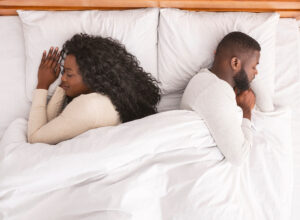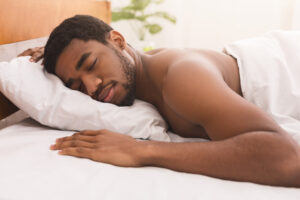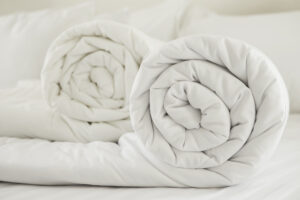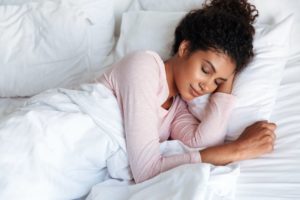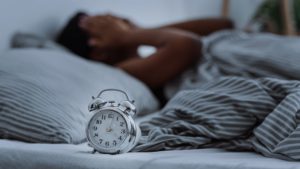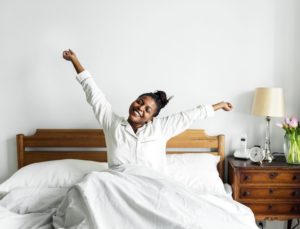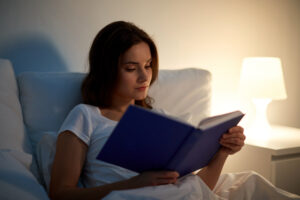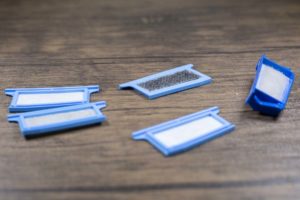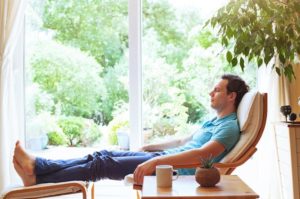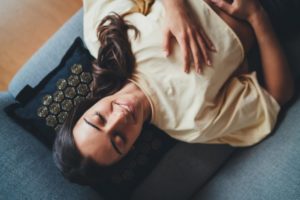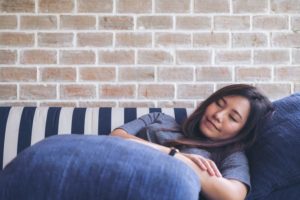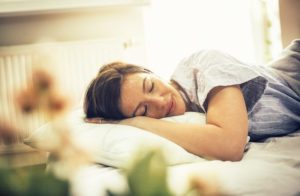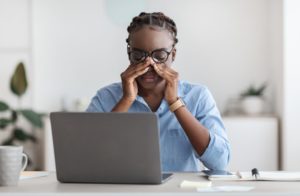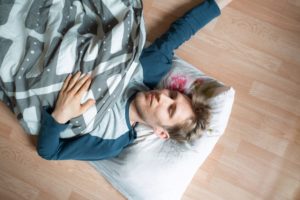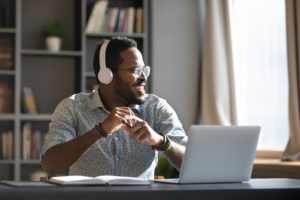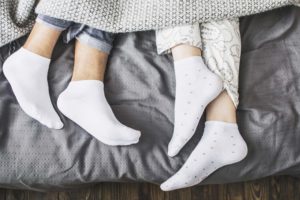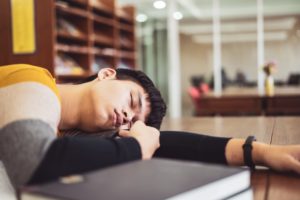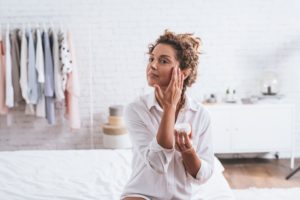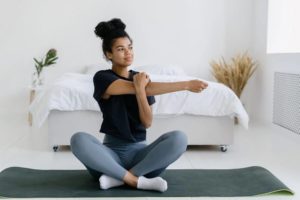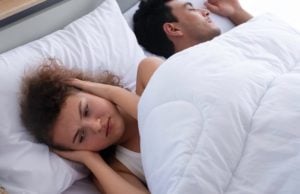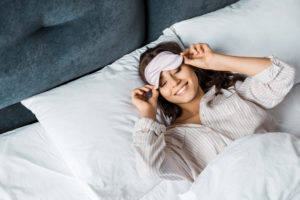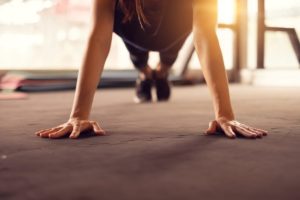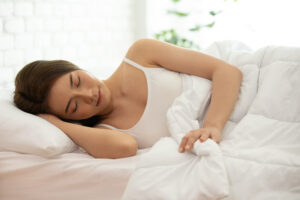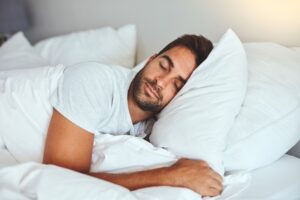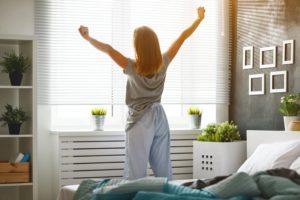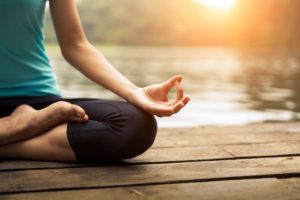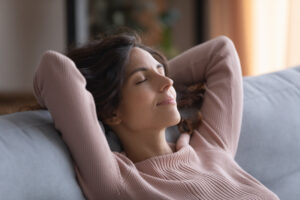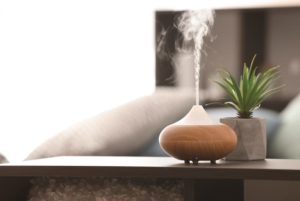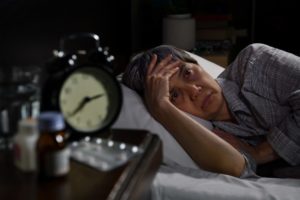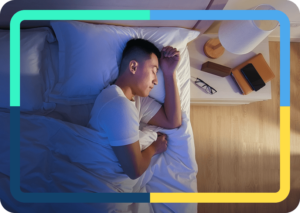20 Tips for How to Sleep Better (original) (raw)
Despite how important sleep is to physical and mental well-being, you may find it challenging to get enough quality sleep each night. The impact of poor sleep can be felt in all areas of your life. The sleep habits you follow each day – known as sleep hygiene – can have a positive effect on how well you sleep. According to data from roughly 160,000 Sleep Foundation profiles, more than two-thirds of respondents have experienced poor sleep for a period of months to years.
We take a closer look at how to sleep better, with clear steps to improve your sleep habits. From evaluating your bedroom environment to optimizing your sleep schedule, our approach to getting better sleep includes specific actions that you can take to make it easier to fall asleep, stay asleep, and wake up feeling well rested.
1. Invest in a Better Mattress and Bedding
Having the best mattress for your needs and preferences is vital to making sure that you are comfortable enough to relax. Investing in a supportive mattress and pillow helps ensure that your spine gets proper support to avoid aches and pains.Your sheets and blankets play a major role in helping your bed feel inviting. Look for bedding that feels comfortable to the touch and that will help maintain a comfortable temperature during the night.
Is Your Sleep a Problem?
If you’re consistently struggling to sleep, there may be underlying sleep issues at play. Answer three questions to better understand your sleep.
Snore loudly?
Tired during the day?
Wake up short of breath?
Please select all options
Excess light exposure can throw off your sleep and circadian rhythm. Blackout curtains over your windows or a sleep mask over your eyes can block light and prevent it from interfering with your rest. Avoiding bright light can help you transition to bedtime and contribute to your body’s production of melatonin, a hormone that promotes sleep.
Keeping noise to a minimum is an important part of building a sleep-friendly bedroom. If you cannot eliminate nearby sources of noise, consider drowning them out with a fan or white noise machine. Earplugs or headphones are another option to stop sounds from bothering you when you want to sleep.
You do not want your bedroom temperature to be a distraction by feeling too hot or too cold. The ideal temperature can vary based on the individual, but most research supports sleeping in a cooler room that is around 65 to 68 degrees.
If you want to make sure that you’re getting the recommended amount of sleep each night, then you need to build that time into your schedule. Considering your fixed wake-up time, work backward and identify a target bedtime that allows for at least seven hours of sleep. Whenever possible, give yourself extra time before bed to get ready for sleep.
It is close to impossible for your body to get accustomed to a healthy sleep routine if you are constantly waking up at different times. Pick a wake-up time and stick with it, even on weekends or other days when you would otherwise be tempted to sleep in.
To sleep better at night, it is important to use caution with naps. If you nap for too long or too late in the day, it can throw off your sleep schedule and make it harder to get to sleep when you want to. The best time to nap is shortly after lunch in the early afternoon, and the best nap length is around 20 minutes.

It is much easier to fall asleep if you are at ease. Quiet reading, low-impact stretching, listening to soothing music, and relaxation exercises are examples of ways to get into the right frame of mind for sleep. Focus on trying to relax instead of trying to fall asleep. Controlled breathing, mindfulness meditation, progressive muscle relaxation, and guided imagery are examples of relaxation methods that can help ease you into sleep .
Tablets, smartphones, and laptops can keep your brain wired, making it hard to truly wind down. The light from these electronic devices can also suppress your natural production of melatonin. As much as possible, try to disconnect for an hour or more before going to bed.
The body’s internal clock is regulated by light exposure. Sunlight has a strong effect , so try to take in daylight by getting outside or opening up windows or blinds to natural light. Getting a dose of natural light early in the day can help normalize your circadian rhythm. If natural light is not an option, you can talk with your doctor about using a light therapy box.
Daily exercise has many benefits for health, and the changes it initiates in energy use and body temperature can promote solid sleep. Most experts advise against intense exercise close to bedtime because it may hinder your body’s ability to effectively settle down before sleep.
Caffeinated drinks, including coffee, tea, and sodas, are among the most popular beverages in the world. Some people are tempted to use the jolt of energy from caffeine to try to overcome daytime sleepiness, but that approach is not sustainable and can cause long-term sleep deprivation. To avoid this, keep an eye on your caffeine intake and avoid it later in the day when it can be a barrier to falling asleep.
Alcohol can induce drowsiness, so some people are keen on a nightcap before bed. Unfortunately, alcohol affects the brain in ways that can lower sleep quality, making it best to avoid alcohol in the lead-up to bedtime.
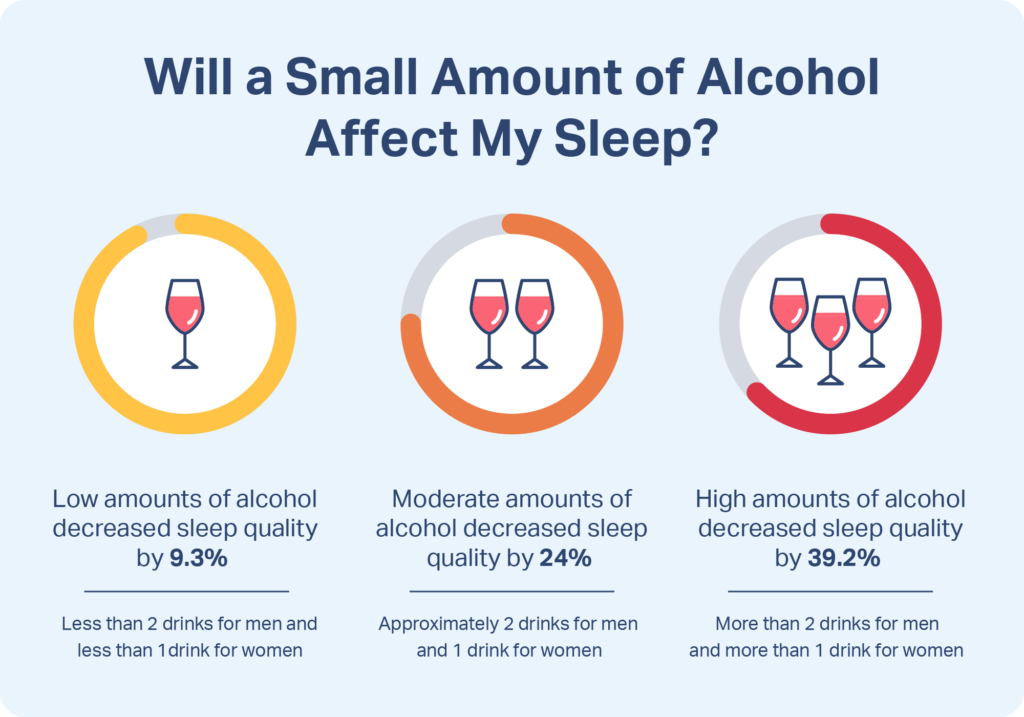
It can be harder to fall asleep if your body is still digesting a big dinner. To keep food-based sleep disruptions to a minimum, try to avoid late dinners and minimize especially fatty or spicy foods. If you need an evening snack, opt for something light.
Exposure to smoke, including secondhand smoke, has been associated with a range of sleeping problems including difficulty falling asleep and fragmented sleep. Nicotine is a stimulant, and evening nicotine use in particular has been found to disrupt sleep .
16. Reserve Your Bed for Sleep and Sex Only
If you have a comfortable bed, you may be tempted to spend your leisure time in it, but this can actually cause problems at bedtime. You want a strong mental association between your bed and sleep, so try to keep activities in your bed limited strictly to sleep and sex.
You want to avoid a connection in your mind between your bed and frustration from sleeplessness. This means that if you have spent around 20 minutes in bed without being able to fall asleep, it is best to get out of bed and do something relaxing in low light. Avoid checking the time or using electronics and return to bed once you feel tired.
A daily sleep journal can help you keep track of how well you are sleeping and identify factors that might be helping or hurting your sleep. If you are testing out a new sleep schedule or other sleep hygiene changes, your sleep diary can help document how well it is working.
In addition to improving overall sleep hygiene, you may want to discuss the use of supplements with your doctor. Melatonin supplements are commonly used to shorten the time it takes to fall asleep. Other natural sleep aids include valerian, chamomile, and glycine. Since dietary supplements are not closely regulated by the U.S. Food and Drug Administration, it is important to take steps to ensure you are purchasing reputable sleep supplements.
Your doctor is in the best position to offer detailed and personalized advice if you experience serious difficulties sleeping. Talk with your doctor if you find that your sleep problems are worsening, persisting over the long-term, affecting your health and safety, or if they occur alongside other unexplained health problems. They can provide additional guidance and treat any underlying conditions.

Still have questions? Ask our community!
Join our Sleep Care Community — a trusted hub of sleep health professionals, product specialists, and people just like you. Whether you need expert sleep advice for your insomnia or you’re searching for the perfect mattress, we’ve got you covered. Get personalized guidance from the experts who know sleep best.

Written By
Eric Suni, Staff Writer
Eric Suni has over a decade of experience as a science writer and was previously an information specialist for the National Cancer Institute.

Medically Reviewed by
Abhinav Singh, MD, MPH, FAASM, Sleep Medicine Physician MD
Dr. Abhinav Singh, board certified in Sleep Medicine and Internal Medicine, is the Medical Director of the Indiana Sleep Center, which is accredited by the American Academy of Sleep Medicine. He is also a Clinical Assistant Professor at Marian University College of Medicine in Indianapolis, where he developed and teaches a Sleep Medicine rotation. Dr. Singh’s research and clinical practice focuses on sleep disorders, including excessive daytime sleepiness, narcolepsy, sleep apnea, chronic snoring, insomnia, and sleep education.
Learn more about our Editorial Team
References
7 Sources
- Consensus Conference Panel, Watson, N. F., Badr, M. S., Belenky, G., Bliwise, D. L., Buxton, O. M., Buysse, D., Dinges, D. F., Gangwisch, J., Grandner, M. A., Kushida, C., Malhotra, R. K., Martin, J. L., Patel, S. R., Quan, S. F., Tasali, E., Non-Participating Observers, Twery, M., Croft, J. B., Maher, E., … Heald, J. L. (2015). Recommended amount of sleep for a healthy adult: A joint consensus statement of the American Academy of Sleep Medicine and Sleep Research Society. Journal of Clinical Sleep Medicine, 11(6), 591–592.
https://pubmed.ncbi.nlm.nih.gov/25979105/ - Martin, J. (2021, December 3). Cognitive behavioral therapy for insomnia in adults. In R. Benca (Ed.). UpToDate., Retrieved May 19, 2023, from
https://www.uptodate.com/contents/cognitive-behavioral-therapy-for-insomnia-in-adults - Jerath, R., Beveridge, C., & Barnes, V. A. (2019). Self-regulation of breathing as an adjunctive treatment of insomnia. Frontiers in Psychiatry, 9, 780.
https://pubmed.ncbi.nlm.nih.gov/30761030/ - National Institute for Occupational Safety and Health. (2023, April 13). Effects of light on circadian rhythms. Centers for Disease Control and Prevention., Retrieved May 19, 2023, from
https://www.cdc.gov/niosh/emres/longhourstraining/light.html - Zandy, M., Chang, V., Rao, D. P., & Do, M. T. (2020). Tobacco smoke exposure and sleep: Estimating the association of urinary cotinine with sleep quality. Health Promotion and Chronic Disease Prevention in Canada: Research, Policy and Practice, 40(3), 70–80.
https://pubmed.ncbi.nlm.nih.gov/32162509/ - Maski, K. (2022, May 23). Insufficient sleep: Evaluation and management. In T. E. Scammell (Ed.). UpToDate., Retrieved May 19. 2023, from
https://www.uptodate.com/contents/insufficient-sleep-evaluation-and-management - Neubauer, D. N. (2022, May 18). Pharmacotherapy for insomnia in adults. In R. Benca & J. G. Elmore (Eds.). UpToDate., Retrieved May 19, 2023, from
https://www.uptodate.com/contents/pharmacotherapy-for-insomnia-in-adults
Learn More About Sleep Hygiene
By Sarah Shoen December 22, 2023

